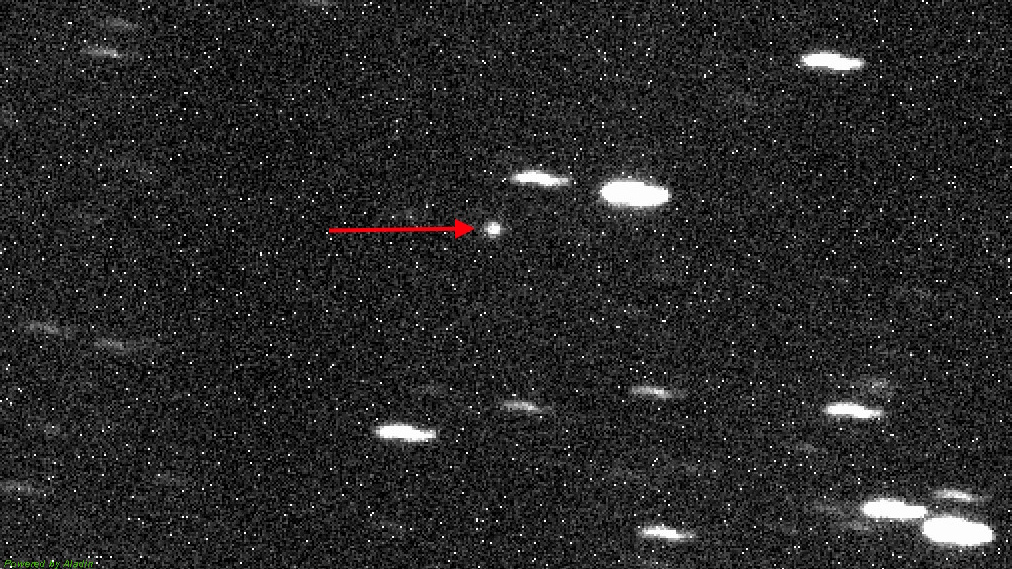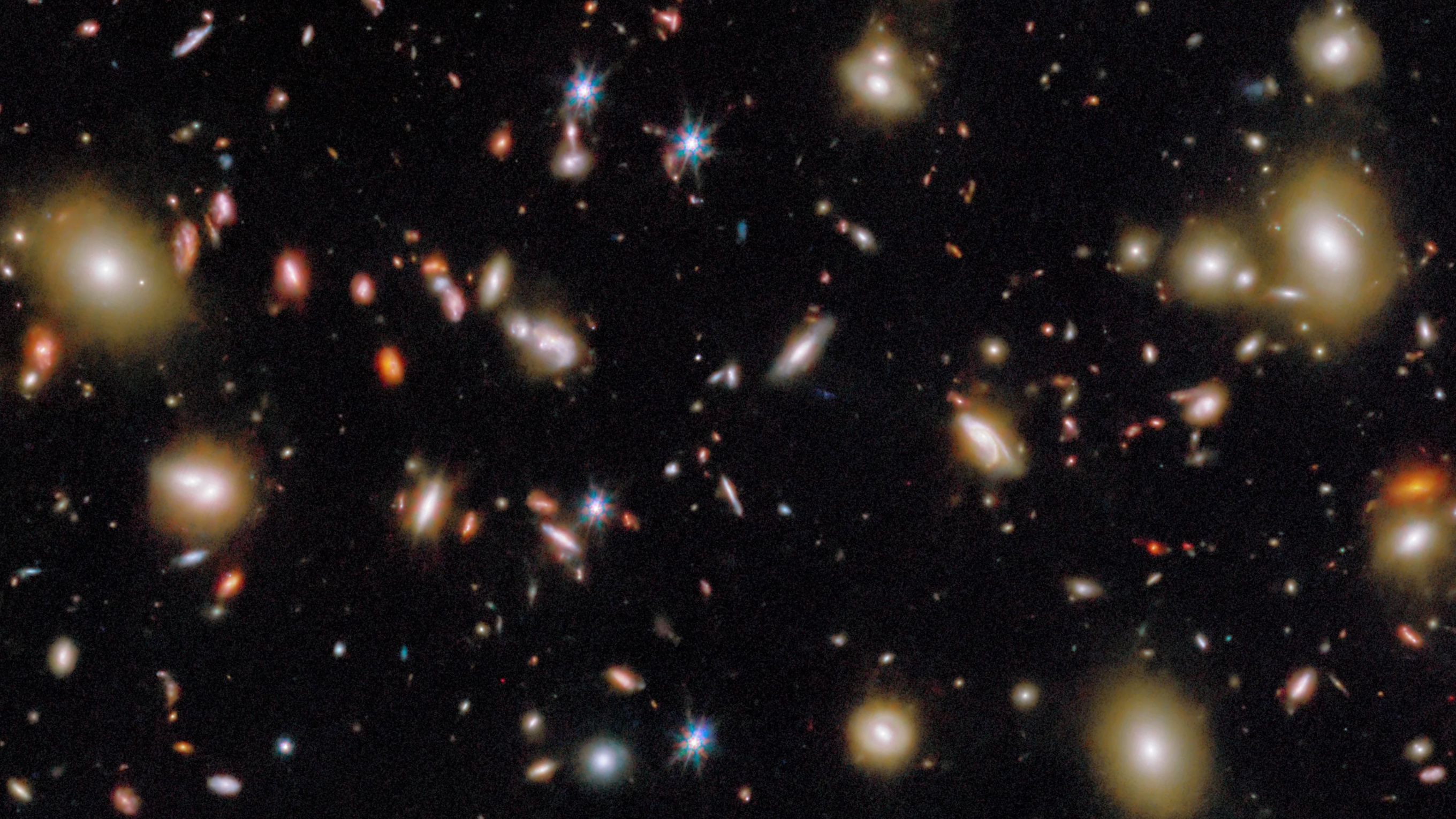Robert P. Kirshner is Harvard College Professor of Astronomy and Clowes Professor of Science at Harvard University. He graduated from Harvard College in 1970 and received a Ph.D. in Astronomy[…]
Sign up for Big Think on Substack
The most surprising and impactful new stories delivered to your inbox every week, for free.
In order to make his greatest discovery, Robert Kirshner had to overcome his own intellectual prejudice—and his mother’s.
Question: What was your greatest “Eureka!” moment, and how did it feel?
Robert Kirshner: Well, I can tell you something about the discovery of the cosmic acceleration which was that, Adam Reese, who was the post doc – had been my student and he was out of Berkeley, and he was doing the data analysis. And he’d call me up on the phone and he’d say, you know, this is kind of funny because I’m getting negative mass, you know. As if the universe is not slowing down, but speeding up. And I said, “Well Adam, you know. There’s lots of ways to go wrong and in your heart,” I said, “you know it’s wrong.” So, my approach to it was prejudice, unwillingness to pay attention – I just assumed he had forgotten to divide by the square root of pi of something and he would find his mistake and this thing would go away. And when it didn’t go away, it meant that we were – first of all, we’d read the paper from the other team and they said the universe is slowing down because of the super, you know, measured by the supernovae, so we had to go against that. We also had to go against the idea that Einstein had said. The cosmological constant was a terrible idea, you know. You shouldn’t talk about it, or as my mother said, “Do you think you’re smarter than Einstein?” I said, “No, mom.” So, this was terrible. Because we had to be confident enough that we would stand up and say this outrageous thing that the universe was accelerating, which was very surprising.
And there was another team and they had data, and if we didn’t do it, maybe they would do it, so we worked very hard and got our publication out early and we thought that was the right thing to do. But one of the things you don’t want to be as an observational astronomer, you don’t want to be wrong. You don’t want to tell people, I’ve seen this thing and it turns out not to be true. Or, as I told Adam, I think that the punishment for being wrong should be as big as the reward for being right. So, you want to do a job that’s reliable and you want to report something that’s accurate. You want to make sure that the statistics justify what you say and that you haven’t forgotten something or made some error.
And so, we were – in those early months there in 1998, I would say, it was very upsetting that this picture that the data were telling us, that we were living in an accelerating universe, and honestly, I did not like it, and I thought it was going to – it had the risk of being a really embarrassing, embarrassing thing. So, it’s worked out okay that 10 years later, the data is much better, the results are quite solid, and there are many other lines of evidence that are converging on this same view. Nevertheless, there’s that moment where, you know, you’re kind of afraid of the new thing. And you don’t want to be wrong. And you don’t want to be embarrassed. Nevertheless, eventually the data gets good enough and usually it’s the kids on the team, you know, the graduate students and the post docs who say, oh come on. Here’s the data, look at the data. Never mind what you think. Look at the data.
So, really new things in science are a little upsetting and kind of hard to come to terms with and for this thing, I actually was resisting for a while. So, it’s turned out okay. In the end I’ve come to like it. This is the universe we live in, at least the universe we think we live in. One that has this remarkable thing, this dark energy which is most of the universe. That we live in a universe that’s accelerating and maybe going into this kind of empty, cold future.
Robert Kirshner: Well, I can tell you something about the discovery of the cosmic acceleration which was that, Adam Reese, who was the post doc – had been my student and he was out of Berkeley, and he was doing the data analysis. And he’d call me up on the phone and he’d say, you know, this is kind of funny because I’m getting negative mass, you know. As if the universe is not slowing down, but speeding up. And I said, “Well Adam, you know. There’s lots of ways to go wrong and in your heart,” I said, “you know it’s wrong.” So, my approach to it was prejudice, unwillingness to pay attention – I just assumed he had forgotten to divide by the square root of pi of something and he would find his mistake and this thing would go away. And when it didn’t go away, it meant that we were – first of all, we’d read the paper from the other team and they said the universe is slowing down because of the super, you know, measured by the supernovae, so we had to go against that. We also had to go against the idea that Einstein had said. The cosmological constant was a terrible idea, you know. You shouldn’t talk about it, or as my mother said, “Do you think you’re smarter than Einstein?” I said, “No, mom.” So, this was terrible. Because we had to be confident enough that we would stand up and say this outrageous thing that the universe was accelerating, which was very surprising.
And there was another team and they had data, and if we didn’t do it, maybe they would do it, so we worked very hard and got our publication out early and we thought that was the right thing to do. But one of the things you don’t want to be as an observational astronomer, you don’t want to be wrong. You don’t want to tell people, I’ve seen this thing and it turns out not to be true. Or, as I told Adam, I think that the punishment for being wrong should be as big as the reward for being right. So, you want to do a job that’s reliable and you want to report something that’s accurate. You want to make sure that the statistics justify what you say and that you haven’t forgotten something or made some error.
And so, we were – in those early months there in 1998, I would say, it was very upsetting that this picture that the data were telling us, that we were living in an accelerating universe, and honestly, I did not like it, and I thought it was going to – it had the risk of being a really embarrassing, embarrassing thing. So, it’s worked out okay that 10 years later, the data is much better, the results are quite solid, and there are many other lines of evidence that are converging on this same view. Nevertheless, there’s that moment where, you know, you’re kind of afraid of the new thing. And you don’t want to be wrong. And you don’t want to be embarrassed. Nevertheless, eventually the data gets good enough and usually it’s the kids on the team, you know, the graduate students and the post docs who say, oh come on. Here’s the data, look at the data. Never mind what you think. Look at the data.
So, really new things in science are a little upsetting and kind of hard to come to terms with and for this thing, I actually was resisting for a while. So, it’s turned out okay. In the end I’ve come to like it. This is the universe we live in, at least the universe we think we live in. One that has this remarkable thing, this dark energy which is most of the universe. That we live in a universe that’s accelerating and maybe going into this kind of empty, cold future.
Recorded on February 17, 2010
Interviewed by Austin rnAllen
▸
3 min
—
with





